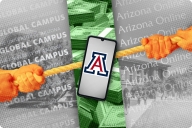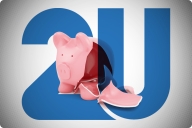You have /5 articles left.
Sign up for a free account or log in.
A lawsuit filed last month in federal district court argues that the education-technology company Chegg misled investors by failing to make clear the company’s growth was a temporary effect of the migration of courses online in response to the pandemic and was “largely due to the facilitation of cheating—an unstable business proposition—rather than the strength of its business model or the acumen of its senior executives and directors.”
The suit—along with a flurry of announcements from law firms announcing investigations of possible violations of federal securities laws by Chegg and soliciting potential plaintiffs—comes after Chegg’s stock price fell by about half immediately following release of its third-quarter earnings on Nov. 1.
Among other services, Chegg offers a subscription-based online service through which students can submit specific questions and receive answers 24 hours a day from an “expert.” Many academic integrity and higher education experts worry about the extent to which students are using Chegg’s on-demand feature to cheat on tests or other assignments. A study published in the International Journal for Educational Integrity last year found that the number of questions submitted to Chegg increased dramatically in the months following the start of the pandemic—an increase the authors of the study linked to a likely increase in cheating among students studying remotely.
The lawsuit, filed as a class action in the U.S. District Court for the Northern District of California, alleges that the company’s executives misled investors about the reasons for, and potential sustainability of, Chegg’s rapid growth. Chegg’s net revenues increased by about 57 percent from fiscal year 2019 to fiscal year 2020, and its number of subscribers increased by 67 percent.
“The company’s statements surrounding its exponential increase in subscribers, revenues, and profits in 2020, which Chegg claimed was due to the strength of its business model and the Company’s leaders’ business acumen, were false and misleading,” the suit states. “In reality, as students took more virtual courses and tests remotely with less supervision, students discovered they had open access to the Chegg Services apps 24/7, including for completing their homework, tests, writing assignments, and even dissertations and exams.”
The suit claims that “once the pandemic-related restrictions eased and students returned to campuses nationwide and schools and universities implemented protocols to eliminate cheating, students predictably stopped subscribing to the platform. In short, Chegg had no basis to believe that the extraordinary, but temporary, growth trends would continue, but failed to adequately inform investors of that reality.”
Chegg’s stock dropped by about 50 percent—from about $63 to $32 per share—within a day after the company announced a decline in its third-quarter revenues compared to the previous quarter.
Chegg subscribers fell from 4.9 million in the second quarter of 2021 to 4.4 million in the third quarter. Overall subscriptions were still up 17 percent year over year, however.
Chegg CEO Dan Rosensweig characterized the slowdown as temporary and attributable to declines in college enrollments combined with declines in rigor during a Nov. 1 earnings call with investors.
“Nobody could have anticipated just the robust nature of the low-end economy, where our kind of students—community college students, four-year students at schools that most of you don’t know about—chose to go earn an income or stay home with their child versus go back to school this semester,” he said. “And then our research shows that of those that did go, 16 percent of them are taking pass-fail. Significant percentages of them are not taking their required classes—they’re taking easier classes. Professors are assigning less, and on average they’re taking fewer courses. Obviously, this is not sustainable. This is a post-COVID hangover of mental exhaustion, an opportunity to earn more money, a reassessing of their lives, not unlike what you hear going on in the corporate workplace.”
A Chegg spokesperson said in response to the lawsuit, “Chegg is a learning platform used by millions of students around the world to study, and we are deeply committed to academic integrity. We take any attempts to misuse our platform extremely seriously, and we also cooperate fully with official university investigations into allegations of cheating.”
“We believe Chegg provides incredibly valuable tools for learning and understanding,” the Chegg spokesperson said. “Approximately one in three of our users are first-generation, low-income and minority students. Ninety-two percent of our users report Chegg helps them better understand the concepts they are studying in school, and 96 percent say that Chegg often helps them figure out a concept or problem that they were stuck on.”
The spokesperson also said that Chegg is “aware of the complaint and, while we are continuing to analyze it, we view the suit as lacking in merit and intend to defend the case vigorously.”
An attorney representing the investor who filed the suit, Steven Leventhal, did not reply to requests for comment.
Chegg is also facing a separate lawsuit filed by Pearson Education in September accusing the company of copyright infringement, which Chegg denies.
Concerns about use of Chegg’s platform for cheating are not new, either in academic or financial circles: a 2019 report from Citron Research, a company that publishes reports for investors and specializes in “identifying fraud and terminal business models” described Chegg as “the poster child for institutionalized academic cheating.”
“For lack of a better term, Chegg’s business model is now CaaS (i.e., Cheating as a Service),” the report says.
Thomas Lancaster, a researcher on academic integrity who conducted the study tracking the increase in Chegg usage after the pandemic started, said it’s difficult to make a judgment about the lawsuit, “as the fact students use Chegg to cheat is hardly secret and any serious investor who did even a little bit of research prior to investing would have known this. But it will be interesting to see where this goes.”
Jeff Silber, an analyst for BMO Capital Markets, said it’s not uncommon after a major drop in stock prices for law firms to pursue investigations and class action lawsuits. In Silber’s own analysis, he downgraded Chegg’s stock from “outperform” to “market perform” in May 2020 because he felt the stock, then valued at around $67, was overvalued. Its value soared above $100 after that, but as of Tuesday it was valued at just under $30.
“I hate to call any company a winner during the pandemic, but the pandemic certainly helped their businesses early on,” Silber said. “I thought the stock had gotten ahead of itself.”








